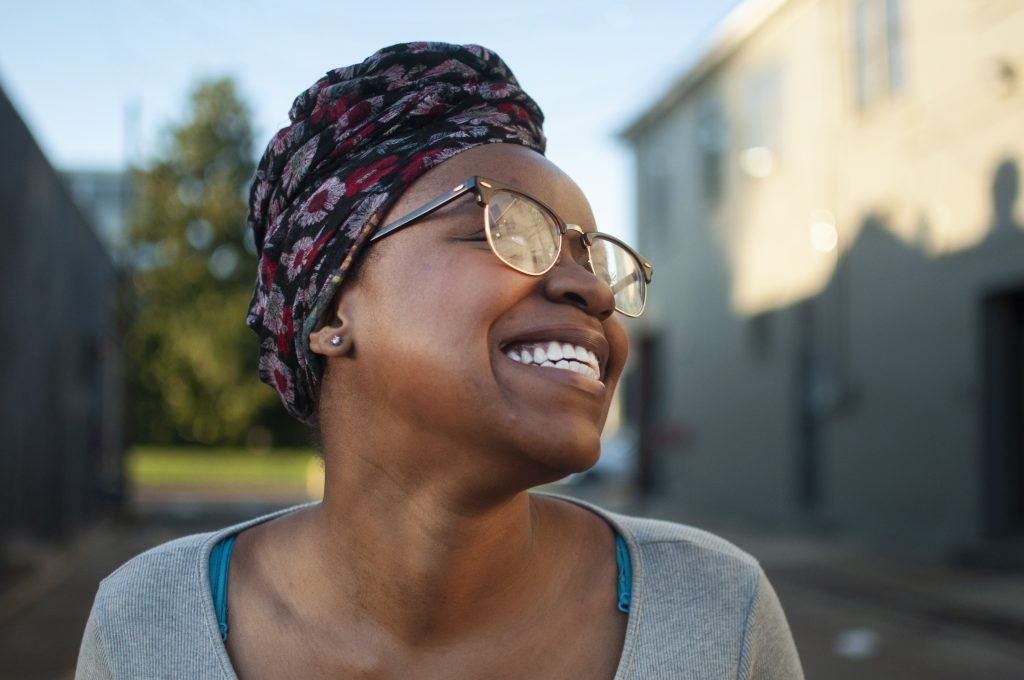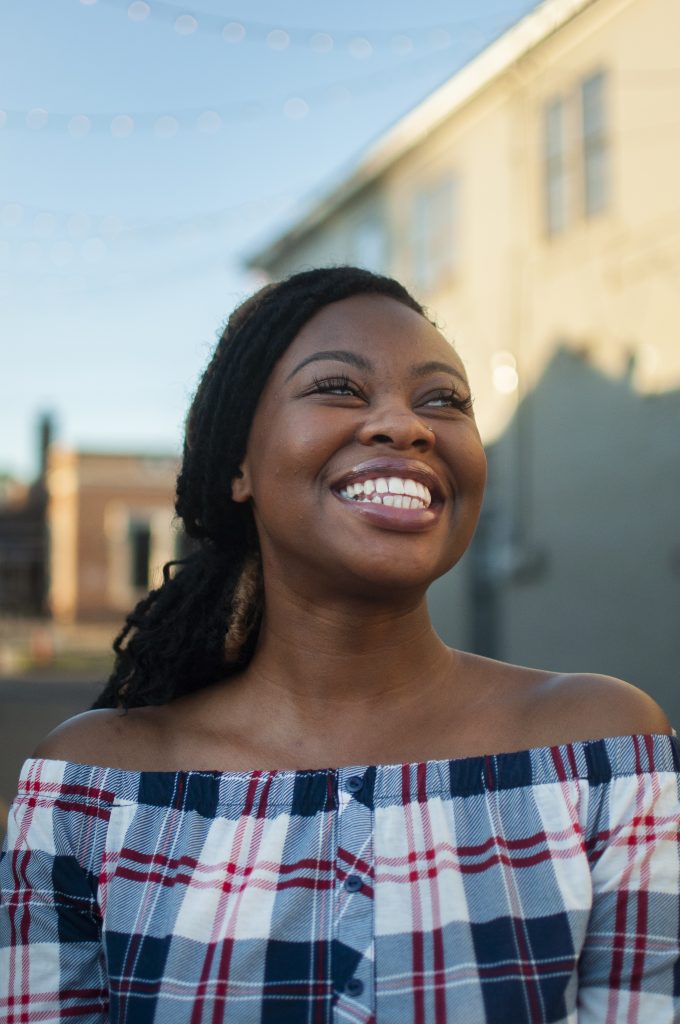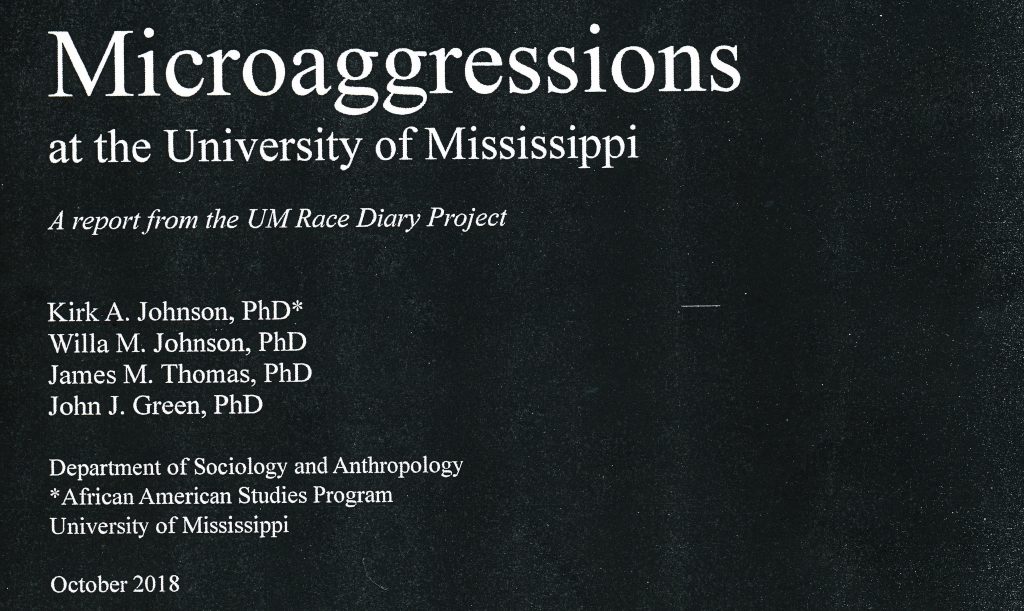When Mahoghany Jordan opened the door to Ki’yona Crawford’s apartment a few weeks ago, she was greeted with a shriek of approval.
“You look fine!” Ki’yona exclaimed, praising Mahoghany’s outfit, and Mahoghany responded, “You look fine!”
Mahoghany was in a zip up jean dress under a red flannel shirt with black booties on. Ki’yona was in a black lace bodysuit, high-waisted jeans, black leather jacket and bright red pumps.
“I bet your lil’ sister wanna look like me,” the City Girls rapped through the speakers as Mahoghany, Ki’yona and their friends mixed drinks and chatted before their night out. “Act up, you can get snatched up.”

Lashes on, hair curled, lipstick on — the women headed to the Square.
“It was a beautiful night,” Mahoghany said. “We had a great time. We really did.”
—
That night in March was the first time the women had gone out together on the Square since they were photographed leaving the Cellar in September. Former journalism school namesake Ed Meek published the photographs to his personal Facebook page and posted a message along with them, as if the two Ole Miss students blemished Meek’s perception of his Oxford.
In reality, Mahoghany and Ki’yona were enjoying a rare night out together, having what Mahoghany said was “the time of their lives” after a week chock-full of classes and work.
“I never knew that I was being photographed,” Mahoghany said. “Like, I would’ve never thought that in a million years.”
A few days following, Mahoghany woke up from a nap after her Wednesday morning class to a “bunch of text messages.”
Her first reaction after seeing the post, she said, was disbelief. She thought she was being pranked.
When it settled in that the post was real, Mahoghany said, her emotions turned into sadness, and then anger.
“This was something the whole world was seeing,” she said. “I have to defend myself, yet again, which I feel I’ve done my whole life.”
—
Mahoghany said men started looking at her body differently when she was 12.
“I was very curvy growing up, so I got a lot of male attention from kids my age and from older men, as sick as that is,” she said. “That was the reality of it.”
Growing up, men often commented on her body, and at some point, she said she became immune to it.
“Especially being young, I didn’t know how to react to the things being said to me,” she said.

When Mahoghany started college, it “just amplified.” Already a self-described “recluse” in high school, Mahoghany’s anxiety heightened on campus.
“I always felt like people were looking at me,” she said. “When I came to college, I tried to be more relaxed, but that didn’t work because men were still focused on my body.”
The first time Mahoghany felt over-sexualized on campus was when she was harassed at a fraternity party. When she reacted, she was told to calm down.
“It was really frustrating,” she said. “How can you come at someone for the reaction they give to some who violated them? How dare you come at me instead of the guy who’s sexually assaulting me and crossing that boundary?”
Throughout college, Mahoghany had experiences with men who “felt they had the right to comment” on her body. So when she saw Meek’s post, Mahoghany was frustrated, yes, but she was mostly tired.
“I knew what was about to come. I knew the wave of messages that were about to happen. The friend requests, from people who were, of course, supporting me, but also the people who agreed with (Meek),” she said. “I have to defend my choices on what I wear. I have to defend my physical body to people. And that was, that is frustrating.”
In the days that followed, Mahoghany received over 1,500 friend requests on Facebook. Many of the messages she received were inappropriately lewd, referring to how beautiful her body was.
“Being a dark-skinned black woman, I feel as if people see me only as an object who is void of emotions, and they can do and say whatever,” she said. “It’s unfair because, yes, I’m very passionate, but in the same token, I’m very delicate. I’m extremely soft. This whole situation has hurt my feelings on levels that I wasn’t aware of in myself.”
—
Though Mahoghany’s entire family was supportive of her during this time, she said her grandmother was especially understanding.
“You’ve got to defend your honor as a black woman and let the whole world know that this is not okay,” Edith told Mahoghany. “Wear whatever you want, and demand respect when you do it.”
Edith Mahoghany, Mahoghany’s 69-year-old grandmother, told her granddaughter as a high school senior to go Ole Miss, though she told Mahoghany that she would probably encounter racism here.
“I felt if she could make it there, she could make it anywhere,” Edith said.
When Edith, who calls herself a “product of the civil rights movement,” found out about the post, she was furious.
“He portrayed her as being someone she totally is not. It was devious to say the least,” she said. “I am proud of her — I thought she particularly articulated her feelings well … but I’m sure she suffers from some anxiety regarding the incident. There should be some restorative justice.”
When she heard about Meek’s post, Edith thought back to her college days at Rust College.
“I believe Mahoghany was destined to be where she was at that particular time for this incident to occur so it can shine a light on the work that needs to be done,” Edith said. “We have made progress, yes, but there are more things that need to be addressed.”
—
Following the incident, Ki’yona and Mahoghany both met with members of university administration and the Center for Inclusion and Cross Cultural Engagement.
“I feel like the school did what they were supposed to do when something like this happens,” Mahoghany said. “It was handled like a procedure.”
A public records request revealed that former Associated Student Body president Nic Lott reached out to university officials to schedule a meeting between the women and Meek after his post. This email was forwarded to Vice Chancellor for Diversity and Community Engagement Katrina Caldwell, but in an interview, she said her office did not coordinate a meeting and she was not aware of any intention or plan to do so.
Mahoghany said she was never encouraged by the university officials to meet Meek.
One of the university officials who stayed in touch with Mahoghany and Ki’yona for several months following the Meek incident was Project Manager in the university’s Division of Diversity and Community Engagement Tanya Nichols, who reached out to them because she “kept thinking about the emotional impact on their lives — not only in the present, but potentially in the future.”
Nichols said she felt, in the days that followed, that the discussion regarding the journalism school’s name and symbols on campus overshadowed who Nichols thought the discussion should be about: the women who were impacted.
“They were lost in the incident,” she said. “To me, it’s very important to keep them central. Their lives have been shaped and impacted by this. The story became about Mr. Meek.”
The women were encouraged to seek counseling at the university, and Mahoghany tried and failed. Work and class made it difficult for her to find time for an appointment.
“I tried three times and couldn’t make it,” Mahoghany said. “It was also important for me to have a black counselor … but I didn’t know how to ask that question. It was kind of off-putting, so I didn’t try to reschedule.”
Though Katie Harrison, staff counselor and outreach coordinator at the university’s counseling center, could not comment on specific individuals’ cases based on HIPAA laws, she said that crisis call services are offered after hours and on the weekend for students experiences mental health crises, and for those who are not able to schedule an appointment during working hours, she cited other campus and off-campus mental health resources for students.
“I was depressed when it happened, and I was depressed after. It just added on,” Ki’yona said.
Ki’yona chose not to seek counseling at the university after hearing about Mahoghany’s experience.
—
Though only Mahoghany’s face was shown in the photo, Ki’yona was impacted by the post as well, which Mahoghany feels many people diminished.
“We were both objectified. People were telling Ki’yona that it was ‘really Mahoghany’s face,’ and to me, that’s unfair because she was still posted. That was still Ki’yona,” Mahoghany said. “So she was just as important, and it was just as important for her voice to be heard.”
Though Ki’yona and Mahoghany were close before this incident, Ki’yona, who Mahoghany describes as a “star, a golden spirit,” acknowledged that it brought them closer together.
“She doesn’t know this, but she really inspires me. I love her and her voice. I’m obviously not happy about the experience, but I’m very, very glad it was with Mahoghany. She motivates me, and I feel like I needed that. Mahoghany is very courageous,” Ki’yona said, before adding, “I would consider us both courageous.”
—
The duo wasn’t surprised when they learned Meek was, at the time, the namesake of the journalism school, but they felt empowered to be a part of the change when his name was removed.
“I didn’t think anything was going to come from it, but that the fact that it did shows when you voice your opinion, you can make a change,” Ki’yona said.
Though Mahoghany agreed that she had made her mark on the university, she thinks much of the university’s response felt like “damage control.”
“Black people, brown people have to fight and fight and fight to feel included. From my experience, I don’t feel like the University of Mississippi really cared about my emotions,” she said. “I feel like they just cared about the image.”
Mahoghany would like for this experience to continue dialogue on campus that results in women here realizing that they “don’t have to accept disrespects.”
“You have complete agency over your own body — your complete body, your mind, your spirit, every part of you — and you have every right to call someone out. You have every right to defend yourself,” she said. “I feel like it’s a trope that’s tied with black women, that once we say something, once we stand up, we’re being ‘too much.’ You’re an angry black woman, and you have every right to be angry, and you have every right to cry.”
—
Mahoghany still hasn’t accepted her 1,500 Facebook friend requests, and Meek has blocked her on the social media platform. But before they graduate in May, she and Ki’yona are planning to go out together once more.
















